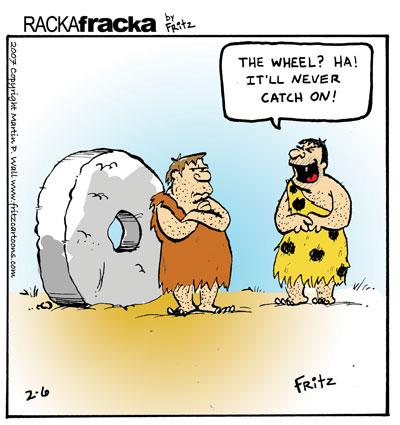Occasionally, I come across an article unveiling some new research finding that literally raises the hair on the back of my neck…in a good way. Such articles are typically the result of rigorous research, uncovering something significantly universal about the core of who we are and how we are made.
Harvard Business Review recently released its Breakthrough Ideas For 2010. If you haven’t seen it yet, it’s worth a look.
“HBR’s annual ideas collection, compiled in cooperation with the World Economic Forum, offers 10 fresh solutions we believe would make the world better.”

The first entry, by Teresa M. Amabile and Steven J. Kramer of HBR, titled Understanding the Power of Progress, resonated enough with my own experience, that I’m pretty sure it will with you as well. I think it will cause many of you to carefully rethink the way you structure training and coaching of your new agents particularly, but could really be applied to anyone in your organization.
“Ask leaders what they think makes employees enthusiastic about work, and they’ll tell you in no uncertain terms. In a recent survey we invited more than 600 managers from dozens of companies to rank the impact on employee motivation and emotions of five workplace factors commonly considered significant: recognition, incentives, interpersonal support, support for making progress, and clear goals. ‘Recognition for good work (either public or private)’ came out number one.
Unfortunately, those managers are wrong.
Having just completed a multiyear study tracking the day-to-day activities, emotions, and motivation levels of hundreds of knowledge workers in a wide variety of settings, we now know what the top motivator of performance is—and, amazingly, it’s the factor those survey participants ranked dead last. It’s progress. On days when workers have the sense they’re making headway in their jobs, or when they receive support that helps them overcome obstacles, their emotions are most positive and their drive to succeed is at its peak. On days when they feel they are spinning their wheels or encountering roadblocks to meaningful accomplishment, their moods and motivation are lowest.
This was apparent in vivid detail in the diaries we asked these knowledge workers to e-mail us every day. In one end-of-day entry, an information systems professional rejoiced that she’d finally figured out why something hadn’t been working correctly. ‘I felt relieved and happy because this was a minor milestone for me,’ she wrote, adding that her efforts to enhance a specific version of software were now ‘90% complete.’ A close analysis of nearly 12,000 diary entries, together with the writers’ daily ratings of their motivation and emotions, shows that making progress in one’s work—even incremental progress—is more frequently associated with positive emotions and high motivation than any other workday event. For example, it was noted on 76% of people’s best days, when their reported moods were most buoyant, and on only 25% of their worst. (The exhibit ‘What Happens on a Great Workday?’ shows how progress compared with the other four most frequently reported positive events.)”
One example within our own business, that we’ve written about before, is the positive impact a measurable recruiting system has on those responsible for moving candidates through predictable steps in the recruiting pipeline, from first contact to hire date. 
By building a system that can be followed with tasks to be performed daily, one feels that they have made progress simply by checking each task off the list for the day.
Here is HBR’s “breakthrough idea” for applying this research:
“As a manager of people, you should regard this as very good news: The key to motivation turns out to be largely within your control. What’s more, it doesn’t depend on elaborate incentive systems. (In fact, the people in our study rarely mentioned incentives in their diaries.) Managers have powerful influence over events that facilitate or undermine progress. They can provide meaningful goals, resources, and encouragement, and they can protect their people from irrelevant demands. Or they can fail to do so.
This brings us to perhaps the strongest advice we offer from this study: Scrupulously avoid impeding progress by changing goals autocratically, being indecisive, or holding up resources. Negative events generally have a greater effect on people’s emotions, perceptions, and motivation than positive ones, and nothing is more demotivating than a setback—the most prominent type of event on knowledge workers’ worst days.”
I don’t know about you, but this simple yet profound finding about how people work best raises the hair on the back of my neck… It says something about who we are, how we are created, and what we are meant to do: Make progress! By small steps, yes…but progress nonetheless.
If you can harness the tapping of this core need in people, you can build and sustain a company, a family, a marriage, or a country…
Editor’s Note: This article was written by Dr. David Mashburn. Dave is a Clinical and Consulting Psychologist, Partner at Tidemark, Inc. and a regular contributor to WorkPuzzle. Comments or questions are welcome. If you’re an email subscriber, reply to this WorkPuzzle email. If you read the blog directly from the web, you can click the “comments” link below.

